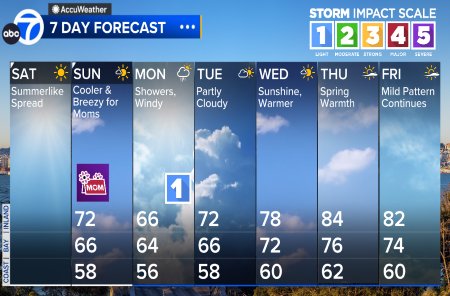When you turn your clocks forward this weekend, take a few extra minutes to make sure that you and your family are better ready for the unexpected. By spending a few extra minutes now could make a huge difference in how you and your family handle a disaster or an emergency.

Prepare for winter by checking your smoke alarm batteries.
- Install smoke alarms on every level of your home, inside bedrooms and outside sleeping areas.
- Check monthly that smoke alarms are working properly by pushing the test button.
- Replace batteries in smoke alarms at least once a year.
- Replace smoke alarms every ten years.
- Check your fire extinguisher and learn how to use it.
The Red Cross is asking every household in America to make it a point to practice fire drills at home.
- Make sure all household members know two ways to escape from every room of your home, and set up a meeting place outside in case of fire.
- Practice escaping from your home at least twice a year and at different times of the day.
- Teach household members to stop, drop and roll if their clothing should catch on fire.
There’s many other things that you could do to prepare for whatever may come.
- Updating the emergency contact information in your family communications plan.
- Choose an out-of-area emergency contact that each person in your family can call if he/she becomes separated during a disaster situation.
- Check your emergency preparedness kit for expired food items, restock anything missing such as food, water and batteries.
- If there have been changes in prescriptions or dietary needs, add new foods and medications as needed to your emergency preparedness supplies.
There’s a lot that we can learn from major disaster such as Hurricane Katrina. Food and water can be invaluable resource during a disaster. It’s recommend to keep at least a 10-day supply of non-perishable food items and water (one gallon per person per day).

Organize a family night and spend time together creating a 72 hour emergency go bag. These bags include food, water, a flashlight, a battery-powered or crank radio, can opener, first aid kit, copies of important documents (like emergency contact lists), and special items such as medications, diapers, and infant formula. They can also include a change of clothes and some extra cash in small denominations. These bags can be kept near the front door to be grabbed at a moments notice or preloaded in the car and available to people where they happen to be.
By doing some of these few simple actions, you could help keep your family aware and prepared during an emergency or disaster.
For more information check out the Basic Emergency Supply Kit flyer and link below! 15 Emergency Preparedness Tips

Are you ready? Is there a tip or suggestion that we missed? Leave your comments below!








Thank You for the helpful tips!
LikeLike
Nice blog you hhave
LikeLike